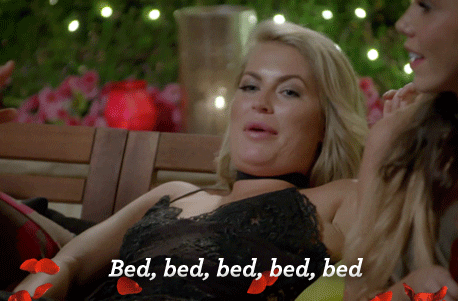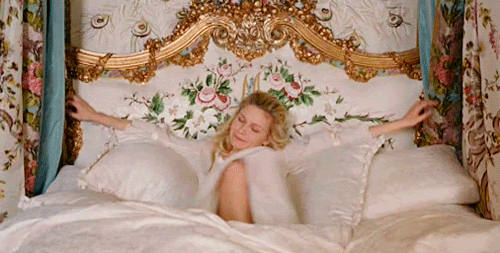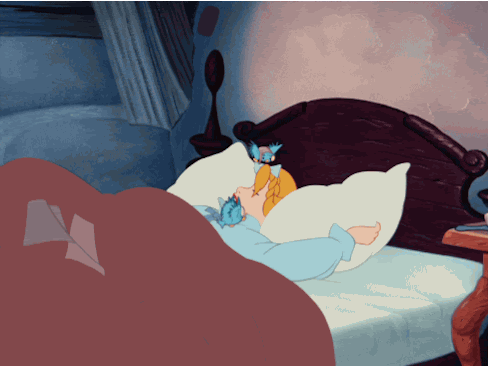#letsbefrank, some babes would rather fall asleep than fall in love. But like any relationship, sleep goes through stages. Most of the time, more than once.
Sleep stages are the reason why a 20 minute nap can have you feeling like you just downed an energy drink, while a 60 minute nap can have you questioning what year it is and what your own name is.

So, what are the sleep stages?
There are 4 stages of sleep (or otherwise called sleep cycle stages). They’re either categorised as REM sleep (rapid eye movement) or NREM sleep (non rapid eye movement). I did my research, babe.
During REM sleep, babes’ brains act similarly to when they’re awake. But in NREM, the brain is quieter and uses less energy. Each stage is equally as important as the others and all have a different purpose.
Let’s break them down a little more.

SLEEP STAGE ONE: FLIRTING WITH YOUR PILLOW. AKA REM SLEEP.
light sleep
So, you’ve decided to get some… sleep. Stage one lasts 5-10 minutes and is the easiest to wake from. You and your bed are just getting to know each other.
This stage also happens in between the other stages. I call that keeping the romance alive. Ever felt like you’re falling off a cliff and then you suddenly wake up? That’s called a hypnic jerk (the better kind of jerk) and it happens at this stage. Some babes say that it’s an evolutionary thing from times when we used to sleep in trees.
What happens to your body in this stage: your breathing pace, body temperature, blood pressure, and heartbeat all decrease. Your brain relaxes. Falling in love asleep is easy.

SLEEP STAGE TWO: OFFICIALLY DATING *ahem* SLEEPING. AKA REM SLEEP
light sleep
You’re properly asleep. Good job. This stage is still light sleep but is harder to wake from than stage one. Still, tell your housemates to keep it down. Stage two is also the longest stage of sleep, lasting around 20 minutes; that’s 50% of the sleep cycle. Like you prepare for a marathon with weeks of warming up, this stage prepares your body for deep sleep.
What happens to your body: your metabolic processes slow down along with heart rate and breathing. You’ll experience a drop in blood pressure & body temperature. And while most of your bodily repairs happen in the deeper stages, this stage helps boost your ability to learn.

SLEEP STAGE 3: THINGS ARE GETTING SERIOUS. AKA REM SLEEP
deep sleep
Welcome to the third and the deepest stage of sleep. You and your bed are extremely comfortable with each other. You might even walk around naked in front of it. It knows all your secrets: like how you only drool when you lie on your left side.
And like how your car needs a service when it makes funny noises, deep sleep is when your body repairs at a cellular level. It’s the most refreshing stage of sleep. It helps erase all the sleepiness you felt at 11am, then 3pm, then again at 8pm. It begins around 40-45 minutes after dozing off.
Babes spend a quarter of the sleep cycle in this stage of sleep and it’s hard to wake up from: all sounds, light, and movements go unnoticed. If you do wake up, you’ll feel disorientated for a few minutes. Avoid napping for 45 minutes. And if you’re a sleep talker, this is the stage you’ll accidentally whisper “Jim” when you’re sleeping next to Jane.
What happens to your body: Tissues are repaired & regrown, memories are processed, waste products are flushed away, bones & muscles are rebuilt, and the immune system is strengthened.

SLEEP STAGE FOUR: YOU’RE STARTING TO SEE OTHER PEOPLE. AKA REM SLEEP
Literally, babe. This is the stage where you dream; about that babe that took your coffee order. Stage four happens after you’ve been asleep for 90 minutes and is important for learning, retaining, and editing memories. It also helps you learn problem solving skills. If you miss out on this sleep, you may feel tired: physically & emotionally.
This is the only stage categorised as the REM cycle stage of sleep (rapid eye movement), because of the flickering your eyes do. And while your eyes are working overtime, your body is doing the opposite. Science babes say our bodies are paralysed in this stage to help us avoid reacting dangerously to our dreams.

“Okay, I get the four sleep stages. But how does a sleep cycle work?”
Glad you asked. Together, the four stages create one sleep cycle, with an average sleep cycle length being 100 minutes. This cycle can happen 4-6 times in one night. All this maths is making me sleepy, #letsbefrank.
The first sleep cycle will have a longer period of deep sleep. As you move through the night, the cycles spend less time in deep sleep, more time in lighter sleep. And if you miss out on quality deep sleep tonight, your body will try to get more tomorrow night.
“So, do I really need 8 hours of sleep?”
In short, yes.
Why? Well, there are different benefits to your body throughout the sleep cycles & stages.
In the first 3 hours of sleep, your body produces the human growth hormone. This hormone makes sure your skin stays radiant and youthful. Without this hormone, skin can’t repair from daily damage like sun exposure, pollution, and unsolicited advice.
In the middle 2 hours of sleep, your body increases its production of melatonin. This is the hormone that regulates your circadian cycle (when you naturally fall asleep and wake up). It also helps protect your skin from free radicals (those pesky things that cause premature ageing).
In the last 3 hours, your cortisol levels decrease. Your skin’s temperature also drops, which means muscles can relax and your skin can properly recover from daily damage.

If you’re constantly waking up through the night, you’re interrupting your sleep cycles & sleep stages and potentially not getting the rest & repair you need and get when you reach the rem stage of sleep.
Each sleep stage is important, as is each sleep cycle.
Track your sleep and how you feel the next day, try to be consistent, and when you notice patterns emerging, that’s when you can get to the bottom of them to get better sleep.
Love frank
xx


